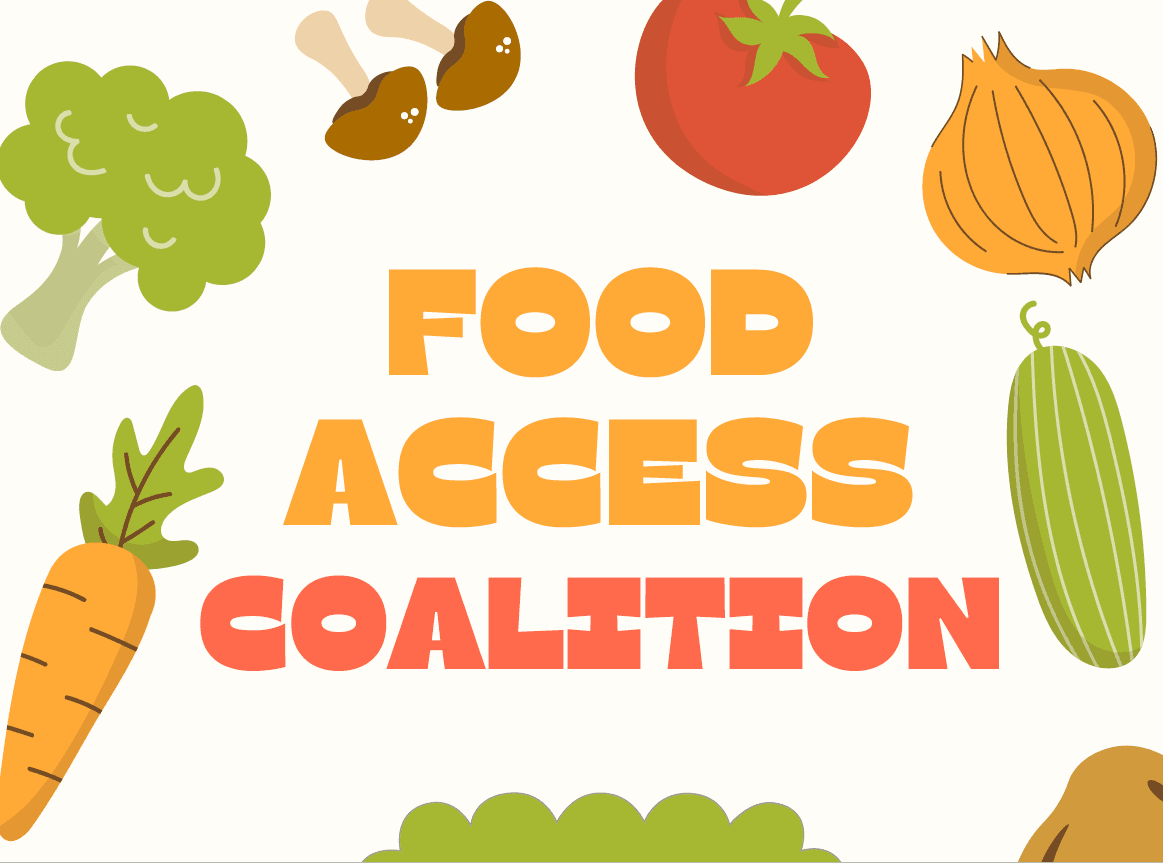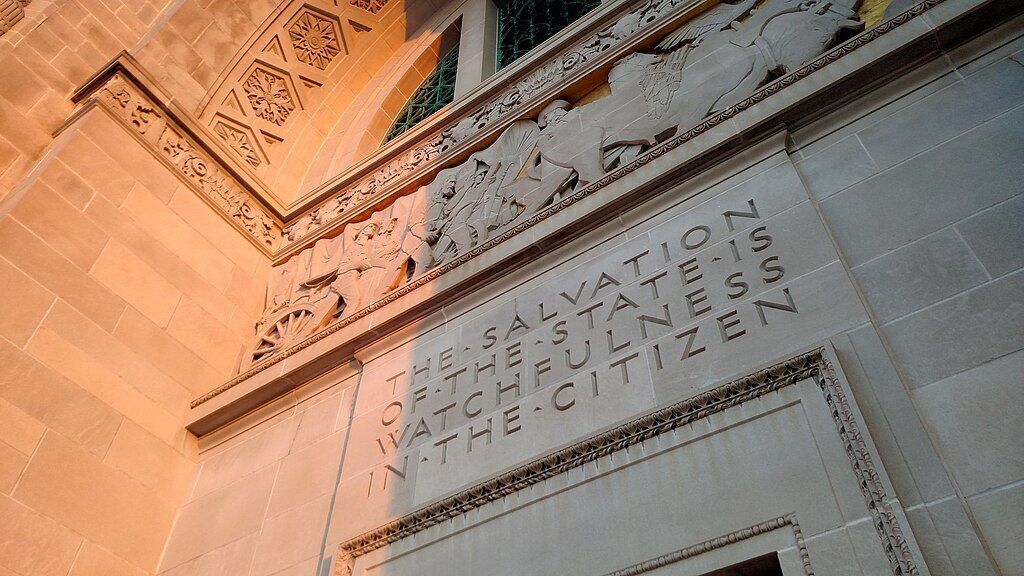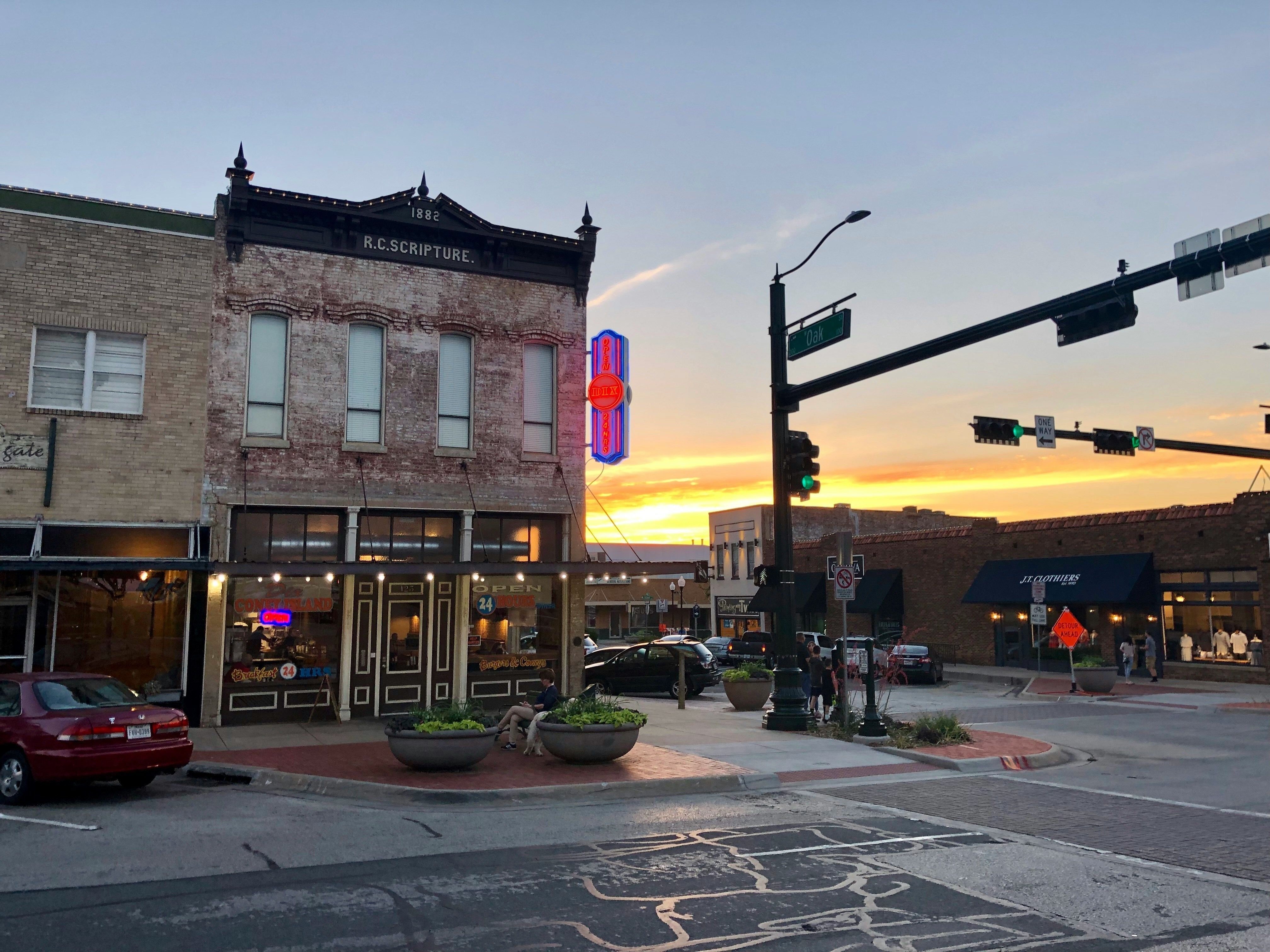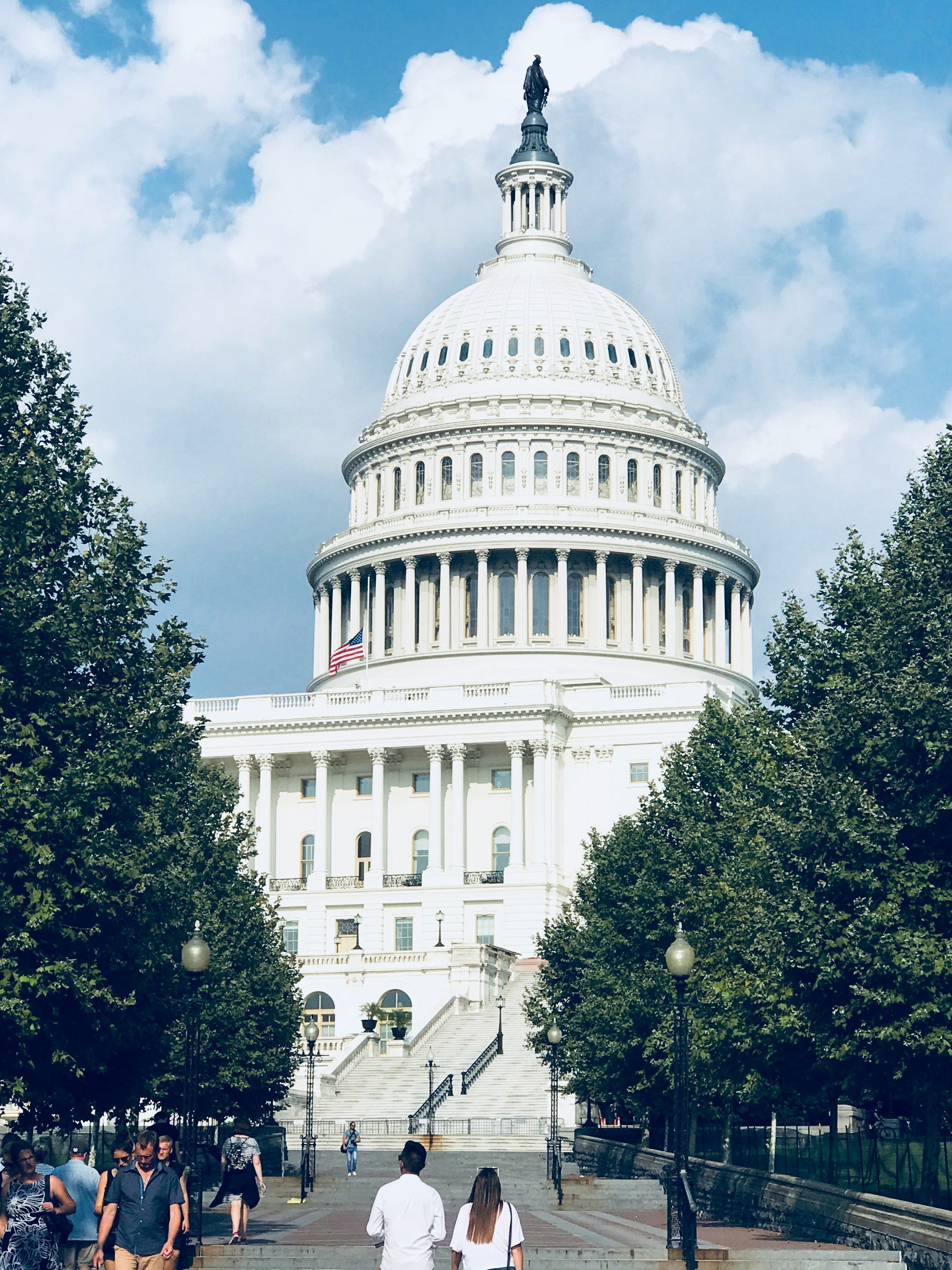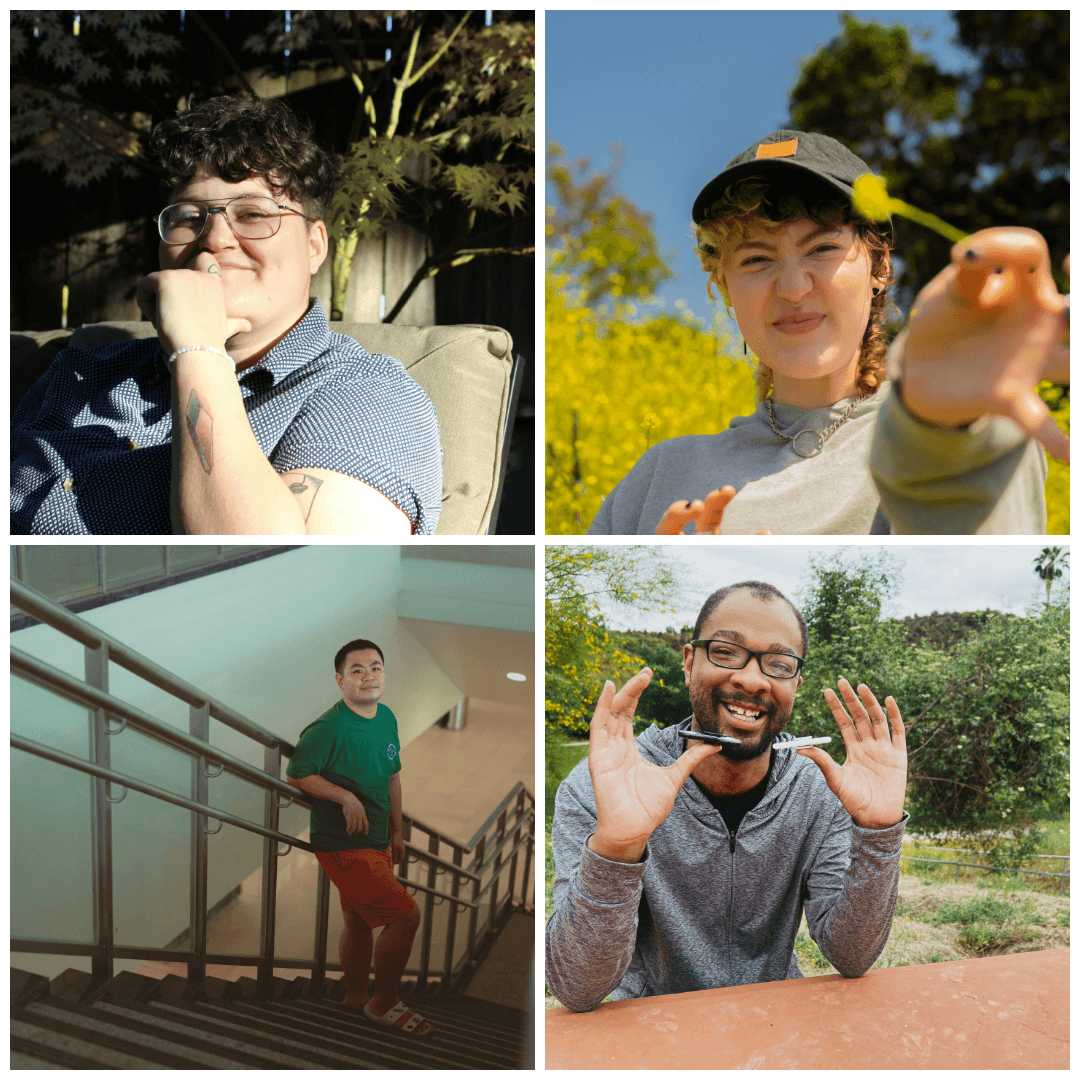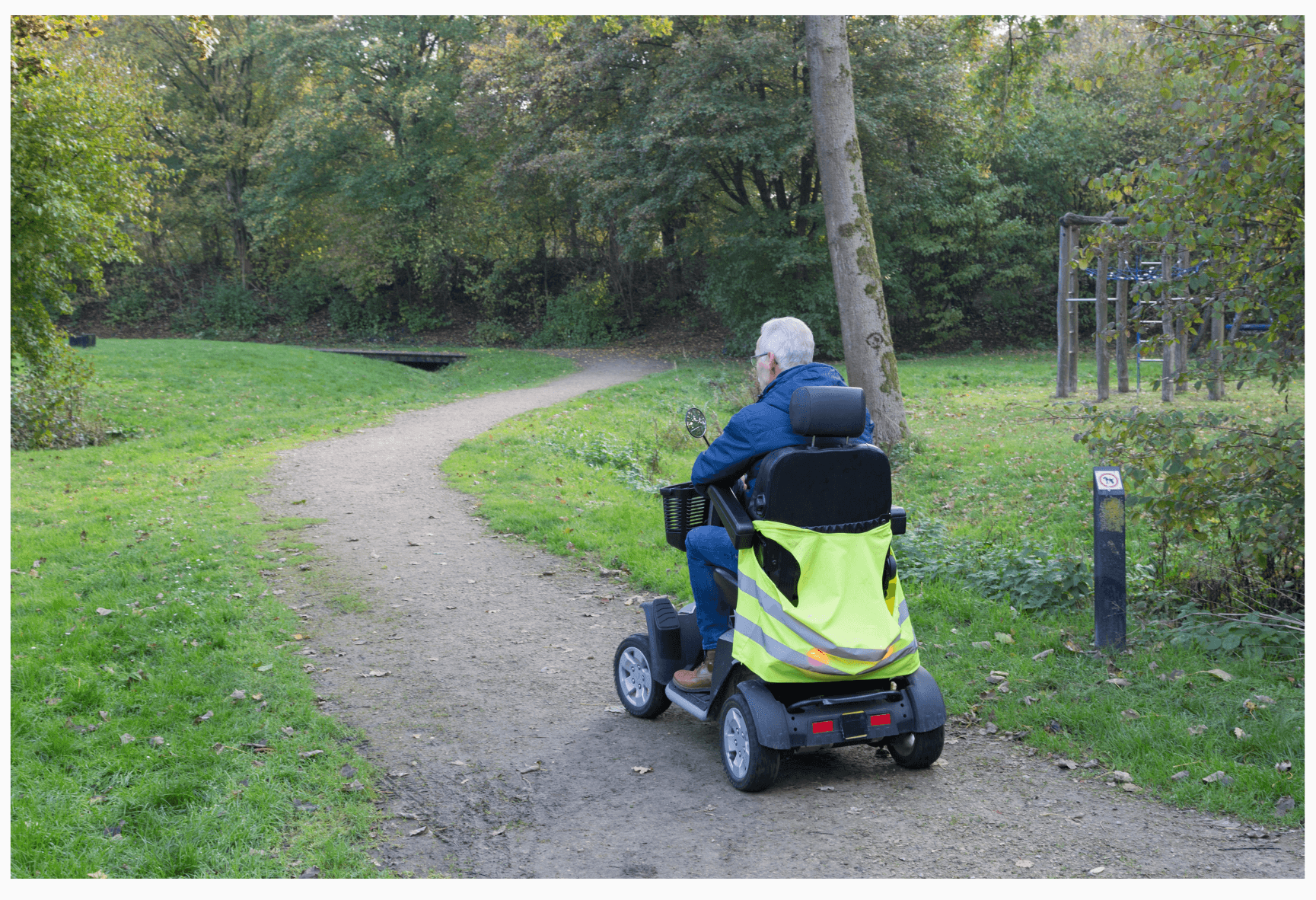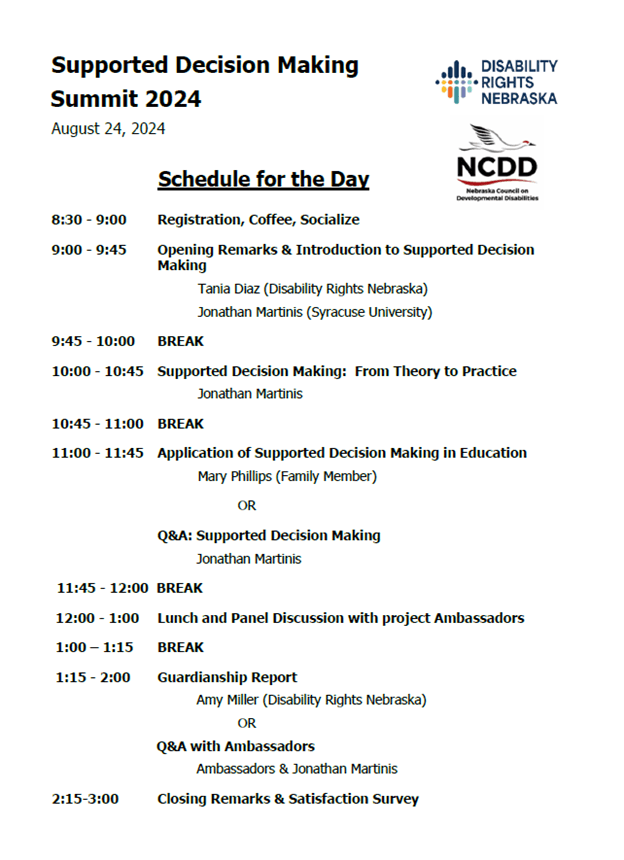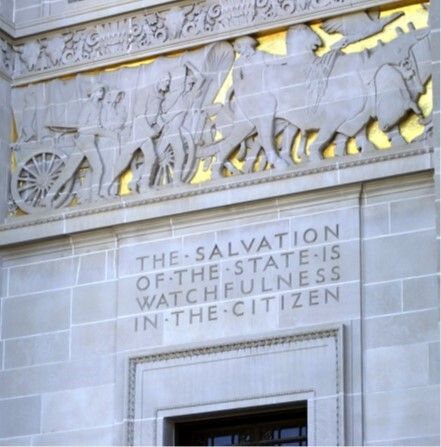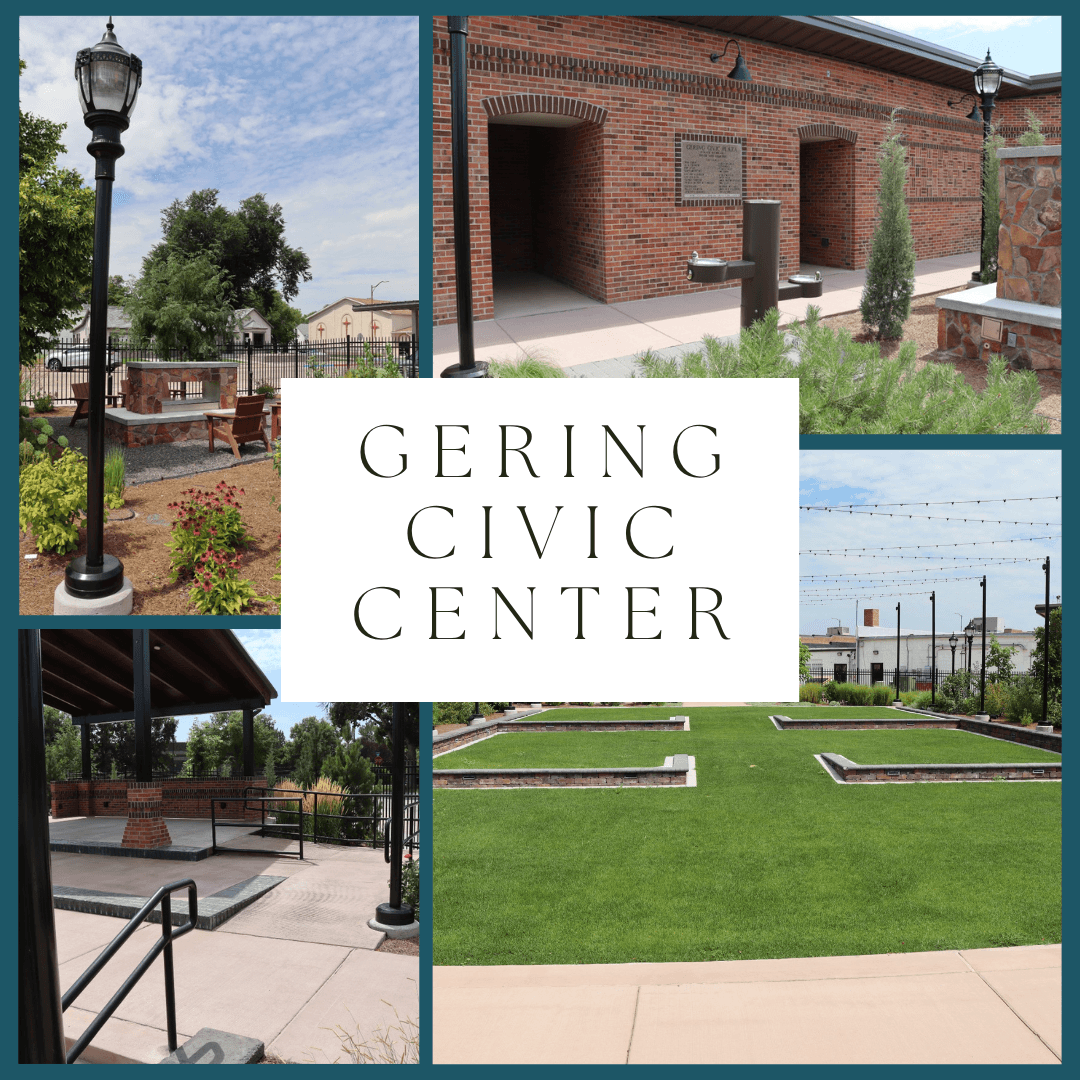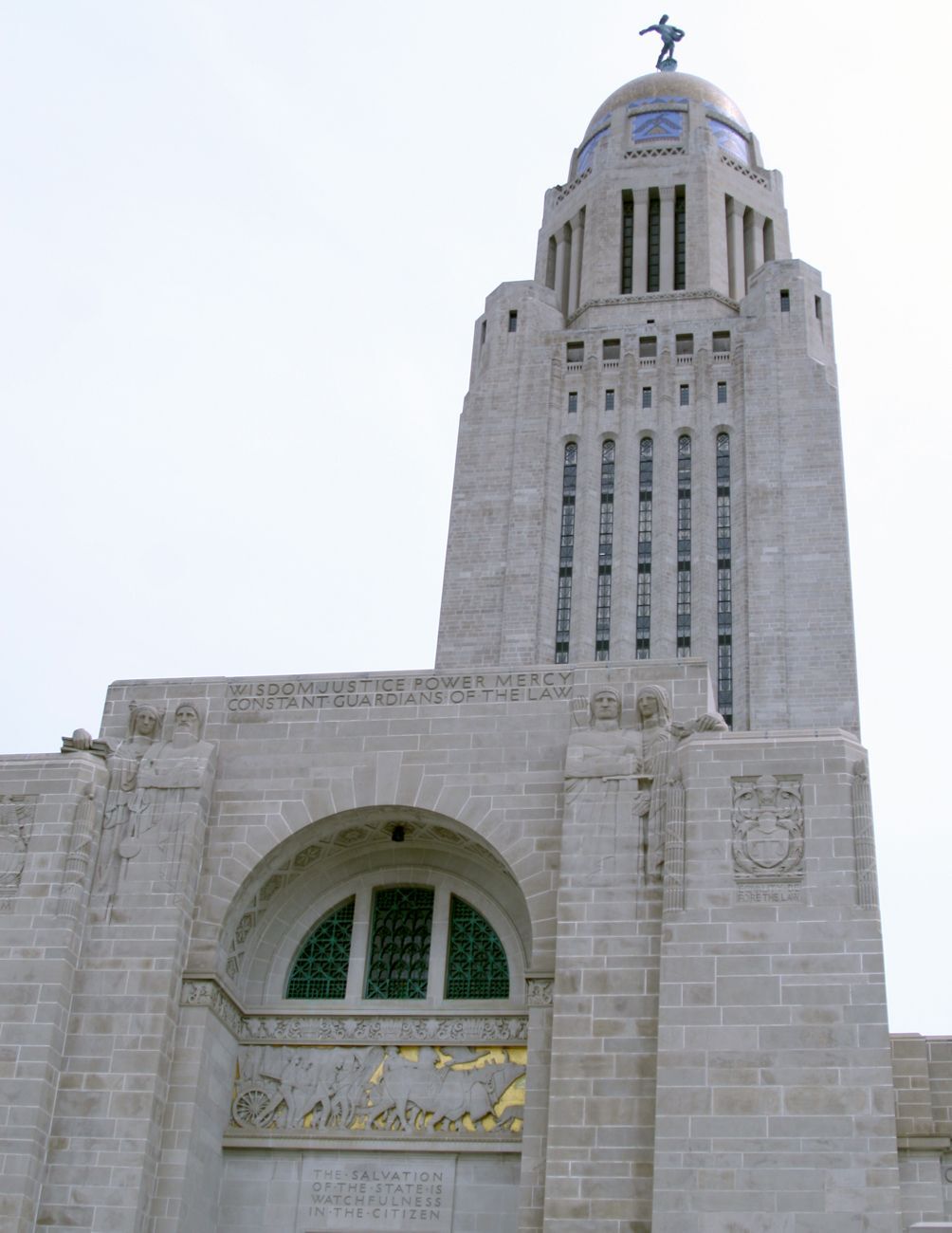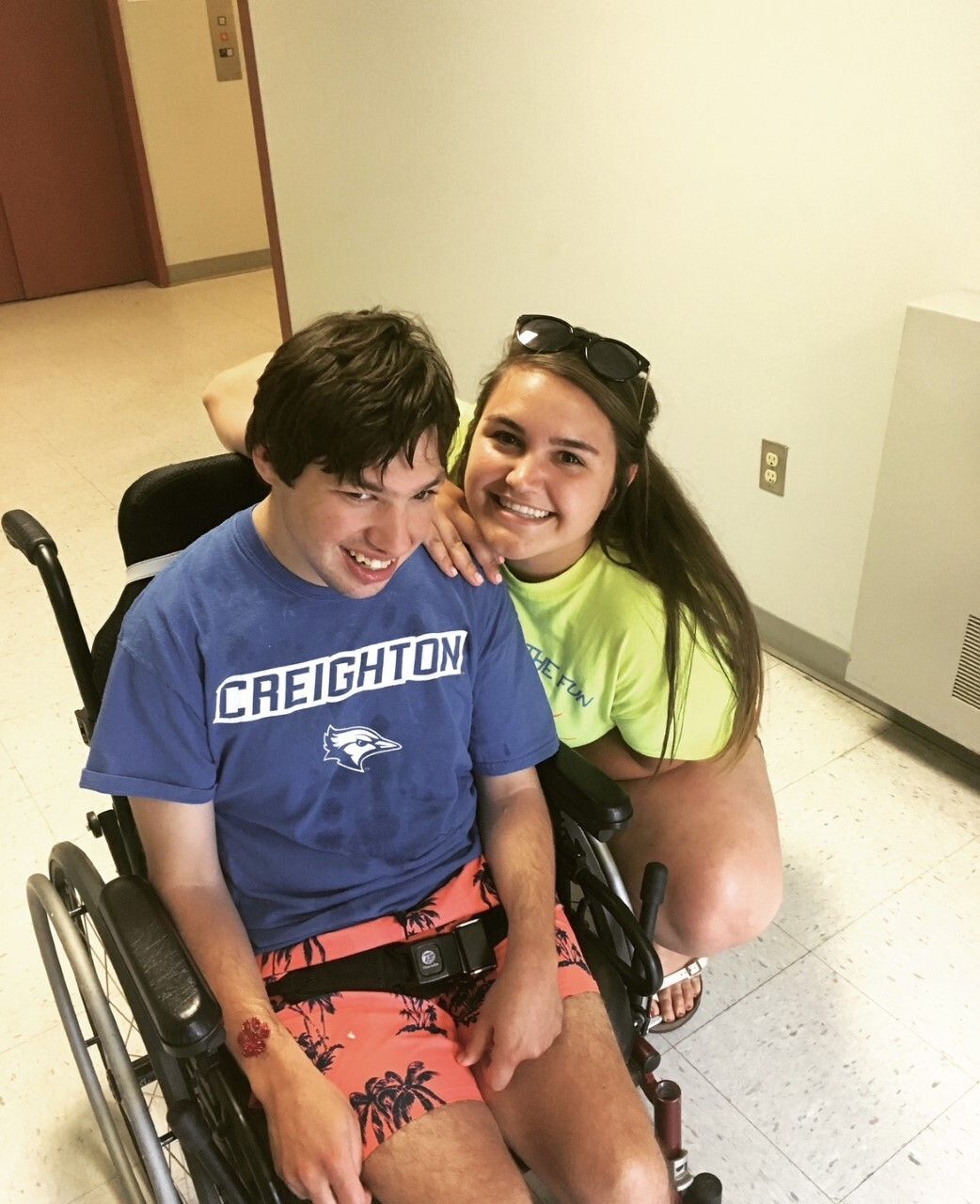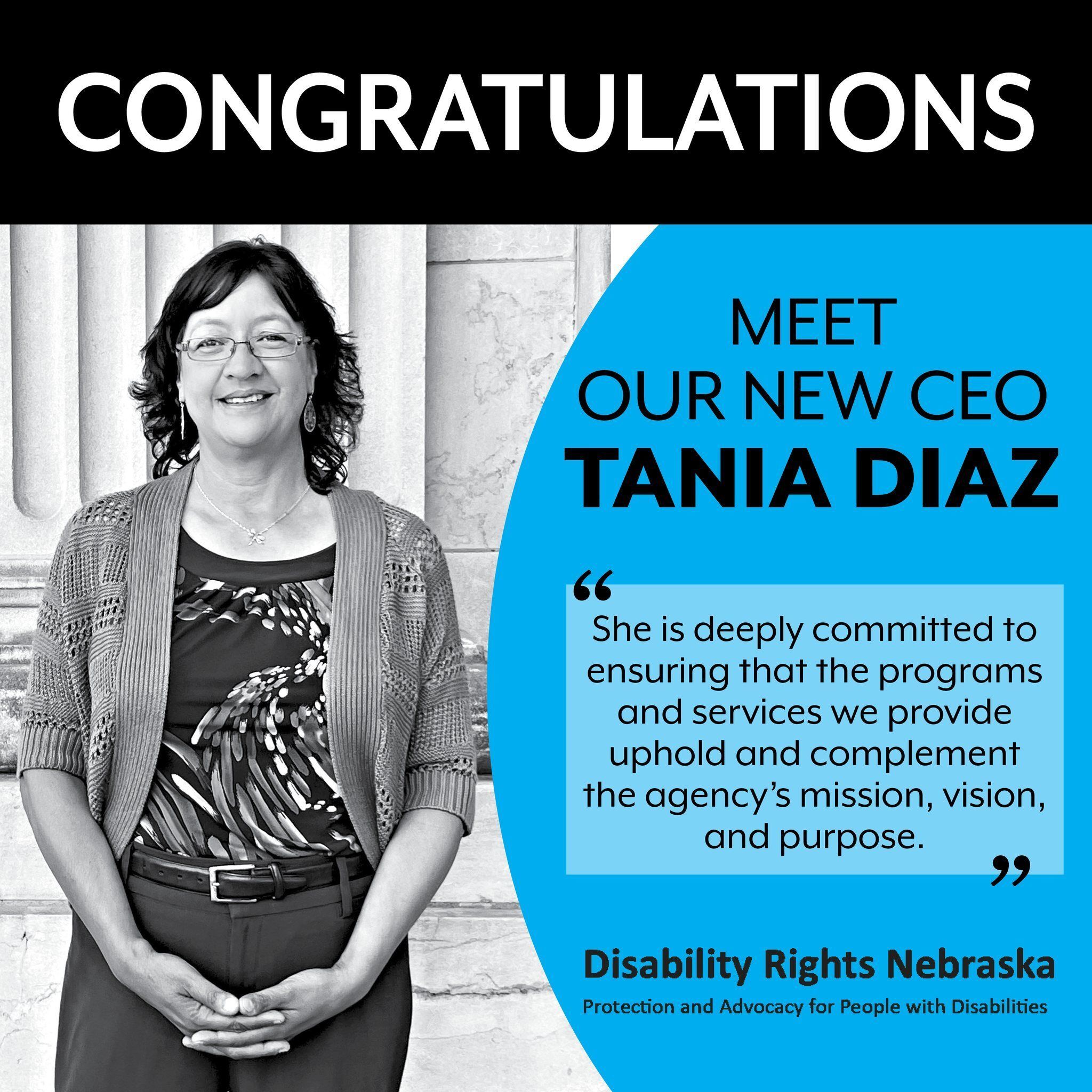In the collaborative atmosphere that is western Nebraska, we're partnering with dozens of other local organizations to make sure people have access to some of their basic needs.
2025 Marked the 50th Anniversary of the IDEA – Individuals with Disabilities Education Act. Our most recent blog post features the Top Three Things you can do to help secure the rights of students with disabilities.
Disability Rights Nebraska’s investigation exposes deep failures in Nebraska’s guardianship system, including inadequate oversight, unaccounted spending of client funds, excessive guardian caseloads, and courts allowing red flags to persist for years. A 2025 arrest of a guardian charged with stealing from a vulnerable adult confirms these warnings and underscores the urgent need for guardianship reform to protect the dignity, finances, and wellbeing of Nebraskans with disabilities.
Accessible transportation helps people with disabilities live independently and stay connected. The Olmstead Advisory Committee’s Transportation Subcommittee wants your input! Share your experiences by completing this short survey to help improve transportation options across Nebraska. Survey closes November 30, 2025: https://tinyurl.com/bddbb9eu
Workers with disabilities help build stronger, smarter, and more resilient organizations. Lay Advocacy Coordinator Pat Cottingham shares more in this month's featured blog post.
An updated version of Nebraska's Olmstead Plan was submitted to the Legislature in July. What is the plan and what does it do for Nebraskans with disabilities? Legal Services Director Dianne DeLair walks us through its significance in this new blog post.
The Americans with Disabilities Act (ADA) turns 35 years old this year. Before the ADA became law, people with disabilities could legally be discriminated against in public accommodations, employment, and transportation. Longtime disability advocates Jill Flagel and Kathy Hoell reflect on their lives before the ADA.
We Won!! Read more about the recent award from the National Disability Rights Network recognizing our work with the U.S. Department of Justice on behalf of Nebraskans with disabilities.
We want your input! Help shape Disability Rights Nebraska’s focus areas for Fiscal Year 2026. Complete our short survey by July 31, 2025 to share your feedback and ensure our work reflects the needs of people with disabilities.
Join us for our Annual Public Comment Board Meeting on June 14, 2025.
Each year, Disability Rights Nebraska invites the public to share feedback on our proposed Goals and Objectives for the upcoming fiscal year. This input helps guide our work and ensures we focus on the issues that matter most to Nebraskans with disabilities.
Our Annual Public Comment Board Meeting will be held on June 14, 2025, from 11:00 AM to 11:30 AM. This is a brief but important opportunity to share your voice, ask questions, and learn how Disability Rights Nebraska plans to protect and promote the rights of people with disabilities across the state.
All are welcome. For meeting details or accessibility accommodations, please contact us at info@disabilityrightsnebraska.org or 800-422-6691.
Medicaid + Congress = Uncertainty. In our most recent blog post, we've gathered our best resources to help you reach out and make your voice heard on potential cuts to Medicaid and the services and supports it provides to people with disabilities.
One in thirty-six children is diagnosed each year with autism. 500,000 young people with autism graduate from high school each year. 2.2% of the adult population has been diagnosed with autism. Welcome to Autism Awareness Month! Read more in this blog post by Pat Cottingham.
Local elections often have a much smaller turnout than Presidential elections, so your vote can have a bigger impact! Read more about the importance of voting local and get some good resources from this blog piece by Sharon Ohmberger.
March 4 is National Assistive Technology Awareness Day! Assistive Technology (AT) is the name for anything that helps a person live more independently, like a wheelchair, door openers, ramps, a prosthetic limb or a tool that helps people with speech or language impairments communicate. Through our Protection & Advocacy AT grant, we can help people who have trouble with a piece of equipment that is a "lemon" - it is defective or cannot be fixed after a multiple repair attempts. Read more in this blog post by Advocacy Specialist Molly Klocksin.
What if the new boss is NOT the same as the old boss? Will your accommodations stay in place? Get tips on employment accommodations from Advocacy Specialist Molly Klocksin in our newest blog post to celebrate National Disability Employment Awareness Month.
On November 7, Douglas County Health Department in Omaha, NE, is hosting their second annual tabletop exercise specifically for individuals with access and functional needs and local organizations that serve them. Tabletop exercises are designed to help prepare communities to respond more effectively in the case of disaster or emergency. Read more about it in this blog post by guest blogger Caleb Kuddes.
Please register for Civil Rights of People with Disabilities and Olmstead v. L.C. Join Dianne DeLair, Legal Services Director, at one of these online opportunities to learn more and ask your questions.
Creativity is one tool to allow the world to see and know people with disabilities. "Creativity As Presence" is a recent blog piece by artist Paulissa Kipp, member of our Mental Illness Advisory Council, and Board of Directors. She is an advocate and a person with lived experience.
The Justice Department announced August 15, 2024, that it filed a complaint and proposed consent decree to resolve allegations that Lincoln Public Schools (LPS), in Lincoln, Nebraska, violated the Americans with Disabilities Act (ADA) by denying some deaf and hard of hearing students an equal opportunity to attend their neighborhood schools or participate in the high school choice program.
In advance of the 34th Anniversary of the Americans with Disabilities Act (ADA), Disability Rights Nebraska announced the conclusion of a year-long investigation into Nebraska’s guardianship system. The investigation revealed over 10,000 Nebraskans under guardianship, many in deplorable conditions due to uncaring, profit-driven guardians. Legal Services Director Dianne DeLair emphasized that having a disability doesn't necessitate a guardian. CEO Tania Diaz highlighted the misuse of full guardianships and fiscal abuses by guardians, calling for reforms modeled after successful programs in other states. The full report, "Guarding from the Guardians," is available on our website. The organization advocates for legislative changes, better education for judges and guardians, and increased use of supported decision-making.
Disability Rights Nebraska, through a grant from the Nebraska Developmental Disabilities Council, has developed a program to raise awareness of Supported Decision Making as a means to increase self-determination of people with disabilities, reduce overbroad or undue guardianships, and examine public policy options for Supported Decision Making in Nebraska.
Ann Magill, a writer with cerebral palsy, was in grad school when the ADA became law in July 1990. Known for her work on disability and social equality, she often highlighted injustices. In 2010, she attended a disappointing event for the ADA's 20th anniversary, feeling it lacked the necessary attention for raising awareness and acceptance of people with disabilities. This experience inspired her to create a disability pride flag, a project she was particularly driven to complete after a horrific attack on a disabled-serving facility in Japan in 2016.
We invite you to comment on the priorities and activities of Disability Rights Nebraska. Your feedback is valuable to us.
The Justice Department announced today, May 14, 2024, that it has concluded an investigation into whether the State of Nebraska subjects' adults with mental illness to unnecessary institutionalization in assisted living facilities and day program facilities, in violation of Title II of the Americans with Disabilities Act (ADA).
The U.S. Department of Justice (DOJ) has been investigating complaints received against the State of Nebraska. The complaints say that Nebraskans with serious mental illness struggle to access the services they need to live and work in the community. The DOJ team will be in Omaha, Lincoln, Kearney, and Scottsbluff next week holding a series of town hall meetings to hear from you and others about your experiences that may be relevant. May 14-15, 2024.
Many states – including Nebraska – have what is called an Olmstead Plan. The plans were developed after the Supreme Court’s Olmstead decision to work toward making sure individuals with disabilities can receive support and services in their community rather than institutions, depending on that person’s preferences and needs.
This survey is a way to gather feedback on the areas included in Nebraska’s Olmstead Plan from individuals who have a disability or are a family member/caregiver to someone with a disability. Your responses will be anonymous, meaning we will not be able to identify who you are.
All the feedback collected will be used to determine what should be prioritized or included in Nebraska’s Olmstead Plan. If you have any questions, would like more information, or would prefer to complete the survey on paper, please contact DHHS.NEOlmstead@nebraska.gov.
Strictly Business - Starting this year all Nebraska residents will need to bring a photo ID with them to the polls. The good news is that a lot of different types of ID will be accepted. For people who are unable to afford the fee for a state ID card, the legislature has made state ID cards free, through your local Department of Motor Vehicles (DMV), for voting purposes to make sure people can still exercise their right to vote.
This year will be the first time Nebraska has required photo identification to vote. We want to make sure you know how to prepare so you can cast your vote. We just made a video to help you prepare. Share it with your family and friends to make sure everyone knows what to do on Election Day.
Questions about Nebraska’s Voter ID Law? You’ll find answers here to some of the questions we hear most often.
¿Preguntas sobre la Ley de Identificación de Votantes de Nebraska?
A bill that would direct millions in federal ARPA funds toward tackling the state’s affordable housing shortage was considered by the Appropriations Committee Feb. 20.
We’re happy to have had a part in bringing this to light. Students with disabilities should be able to receive needed services and supports in their neighborhood schools.
The Justice Department announced February 14, 2024, that Lincoln Public Schools (LPS) in Lincoln, Nebraska, violated the Americans with Disabilities Act (ADA) by denying some deaf and hard of hearing students an equal opportunity to attend their neighborhood schools.
The next session of the Nebraska legislature is fast approaching! The Second Session of the 108th Nebraska Legislature is scheduled to start on January 3rd, 2024 and end on April 18th, 2024.
We stopped to check out the Gering Civic Plaza, the beautiful results of work started up and organized by the Tri-City Active Living Advisory Committee.
For families of children with disabilities, “a new school year” may mean waiting for another unscheduled call from school asking them to come pick up their child part way through the day. The more often it happens, the more a child misses out. Staff Attorney Madison Wurtele shares the protections students and families have from this type of school discipline in our next blog post.
New Nebraska law gives you the right to more personalized care in a mental health crisis—read more...
While the First Session of the 108th Legislature is complete, there’s still a lot of activity, especially around Interim Studies. Public Policy Director Brad Meurrens provides a short summary of what happened with a few of the bills on our priority list and what happens next.
Are you a student with a disability or do you have a child with a disability who is considering a summer job? Children or young people with disabilities who receive supplemental security income (SSI) are sometimes warned away from seeking a summer job. In the second installment of this two-part blog series by Disability Rights Attorney Michael Elsken, we look at how young people with developmental disabilities can not only take that job, but save for college / the big trip / the car without endangering Social Security benefits. To learn more, check out our blog.
Children or young people with disabilities who receive supplemental security income (SSI) are sometimes warned away from seeking a summer job. This two-part blog series by Disability Rights Attorney Michael Elsken explains how young people can reap the rewards of the summer job without endangering Social Security benefits.
Jenny was matched with Disability Rights Nebraska because of her interest in advocacy and worked with Public Policy Director Brad Meurrens at our office. She speaks of her experience testifying on LB 424.
“Education can really help breakdown barriers because it shows people that disability is nothing to be afraid of,” said Sharon Ohmberger, Community Engagement Director at Disability Rights Nebraska. “That there’s no harm in welcoming people and making some accommodations for people so they can participate like everyone else.”
You can reach Disability Rights Nebraska at 800-422-6691 or 402-413-2016!
Our new address is 2930 Ridge Line Road, Suite 205, Lincoln, NE 68516.
November 29, 2022, marked the 47th anniversary of the passage of Public Law 94-142, initially called the Education of All Handicapped Children Act (EHA) and later renamed the Individuals with Disabilities Education Act (IDEA). Signed into law by President Gerald R. Ford on November 29, 1975, this Act ensured that children with disabilities would no longer be routinely excluded from accessing the public schools in their communities.
We have been quietly making our way across the state to doublecheck accessibility ahead of the November General Election. Our work has included: surveys of every single county election website to make sure it was usable for people who are blind or have low vision, in-person tours of the 30 largest counties’ election offices to identify any physical barriers for people who use wheelchairs, and ongoing collaboration with the Nebraska Secretary of State’s office to educate local voting officials.
Disability Rights Nebraska is fortunate to have a long history of dedicated public policy advocacy as a true compliment to our legal advocacy. Better late than never, below are some of our public policy success stories from the last legislative session and upcoming activity to watch out for.
Social Media is such a staple in our everyday lives. It can help create and foster friendships, open up new worlds of learning, and provide new opportunities for career connections. But how accessible are these platforms to everyone, especially to those with disabilities?
As Disability Rights Nebraska prepares to usher in a change in leadership, Sharon Ohmberger sat down with Eric Evans to talk with him about the top five points of advocacy he’d like people to remember during this transition and beyond. All of them are rooted in Eric’s deep passion for and commitment to disability rights and human rights. Since he has been an advocate here in Nebraska for almost 50 years, he has wisdom we can all use.
As of July 5, 2022, Tania Diaz will become Chief Executive Officer for Disability Rights Nebraska. She began her career as a law clerk on work-study through the University of Nebraska-Lincoln. After earning her law degree, she joined the organization as a staff attorney, a position that evolved into her role as Legal Services Director. These roles have provided her with extensive knowledge and experience working with state and federal partners and stakeholders to protect and advocate for the legal and human rights of people with disabilities.
Tania believes it is imperative that the organization continue its engagement with values-based programs and principles; the philosophy provides the foundation for Disability Rights Nebraska as a progressive organization on the leading edge of disability rights. She is deeply committed to ensuring that the programs and services we provide uphold and complement the agency’s mission, vision, and purpose.
Hope for the Best, Plan for the Worst: How Disability Rights Nebraska is working to ensure Nebraskans with Disabilities Are Protected in the Next Emergency, a blog post by Staff Attorney Amy Miller

